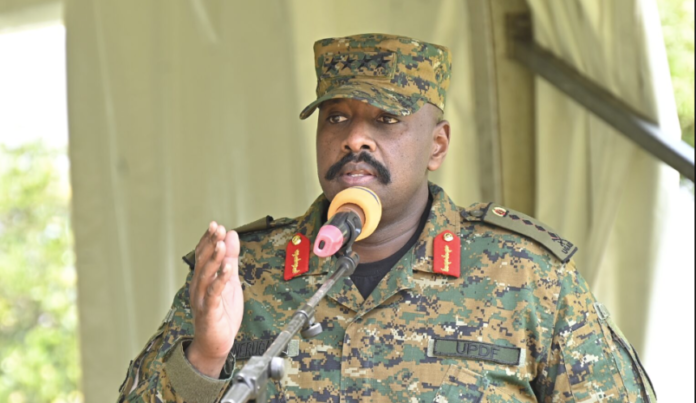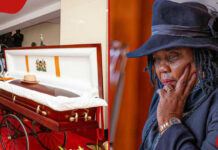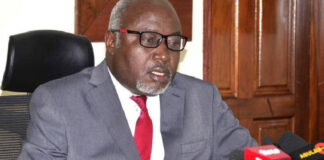KAMPALA, Uganda — In a stunning mix of military patriarchy and political posturing, General Muhoozi Kainerugaba, Commander of the Uganda People’s Defence Forces (UPDF) and son of President Yoweri Museveni, has stirred both domestic and international outrage with a controversial decree: female soldiers in the UPDF are now banned from wearing trousers.
Taking to his X (formerly Twitter) account, the general announced that skirts are now mandatory for all female personnel in the armed forces. The justification? According to Muhoozi: “Trousers are for men, not for women.” He doubled down with a stern warning: “Anyone who forces our sisters to put on trousers on parade again will have a very bad day.”
The directive has sparked backlash for its blatant sexism and disregard for military practicality, with many questioning whether this is a fashion statement or a manifestation of archaic control masquerading as discipline. Critics argue it undermines gender equality and the professionalism of Uganda’s military.
Muhoozi also escalated his rhetoric into international diplomacy—or rather, hostility, threatening to expel foreign nationals seen as opposing his father’s re-election bid in the upcoming 2026 general elections. His targets? The European Union delegation in Uganda and any foreign observer who dares to engage with opposition leader Bobi Wine.
“In this coming election, the Bazungu [white people] in our country who do not support Mzee wholeheartedly, better be very careful!” Muhoozi warned. “We will deport all the traitors in public view!”
His online tirade continued with a threat to sanction the EU mission, stating he had received the green light from Museveni himself. “@EUinUG is playing with fire,” Muhoozi warned, posting an image of EU officials shaking hands with Bobi Wine. “We have MARKED all of them, especially the one shaking Kabobi’s hand.”
This latest outburst comes as speculation swirls about Museveni’s 2026 candidacy. Despite earlier suggestions that he might step down, the 79-year-old has recently hinted that “the people are crying out for him,” and that he still has the energy to lead.
Having ruled since 1986, Museveni has already secured six consecutive terms—often marred by allegations of vote rigging, suppression of dissent, and military intimidation of the opposition. His 2021 re-election saw a heavy crackdown on Bobi Wine’s supporters, internet blackouts, and widespread arrests.
With Muhoozi’s increasing online belligerence, many observers now see Uganda inching closer to dynastic authoritarianism, where the lines between government, military, and family loyalty blur dangerously.
Under Museveni and Muhoozi, Uganda’s human rights record has worsened, according to numerous watchdogs. The military has been accused of abducting opposition figures, violently dispersing peaceful protests, and weaponizing law enforcement against dissenters.
This latest move—to both control the attire of female soldiers and intimidate international observers—is being seen as a double-pronged assault on both women’s rights and democratic integrity.
Uganda now finds itself at a crossroads: a regime bracing for another election it seemingly refuses to lose, and a military leadership projecting both insecurity and unchecked ambition.
As the world watches, one thing is clear: the stakes in Uganda’s 2026 election are no longer just political—they’re profoundly personal, institutional, and international.
By Kelly Were | Uzalendo News



















